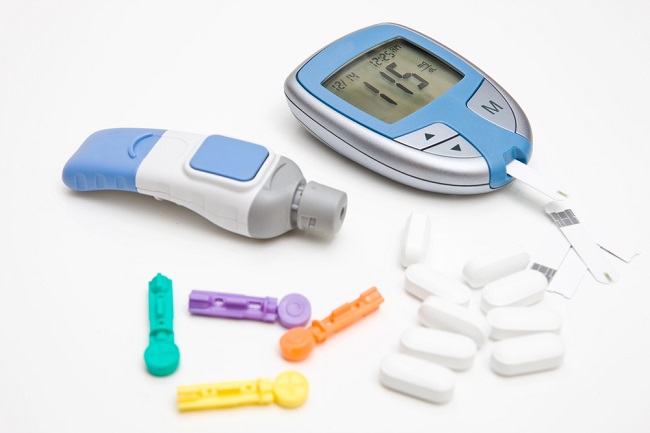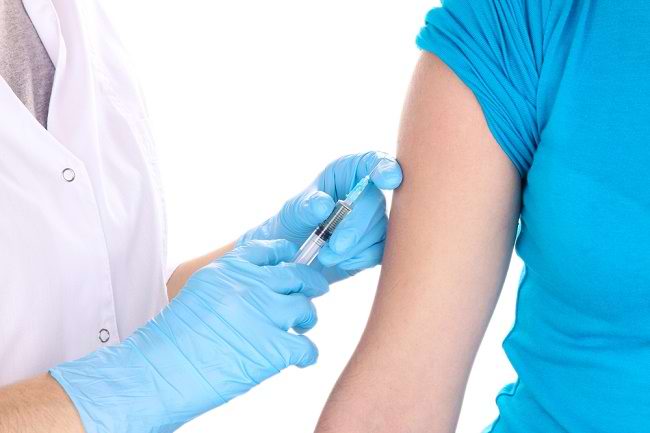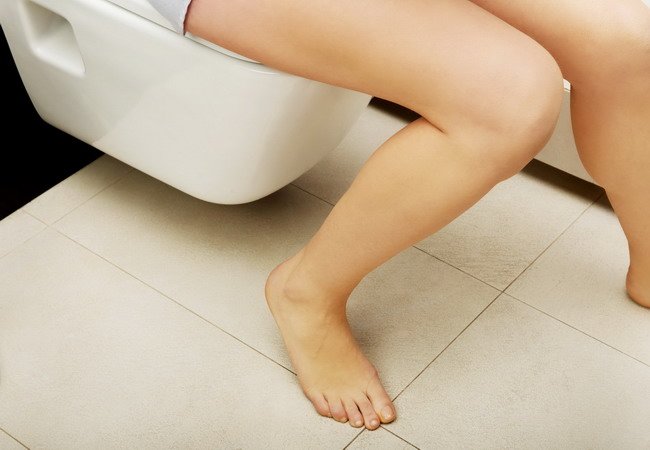Sodium biphosphate (sodium phosphate) is a drug to treat constipation or difficult bowel movements. This medicine can also be used to clean the intestines before colon surgery procedures and medical examinations, such as X-rays, endoscopy, or colonoscopy.
Sodium bisphosphate is a stool softening laxative (saline laxative). This drug works by increasing the absorption of water in the digestive tract, so that the stool or stool becomes softer and easier to pass.

Sodium Biphosphate trademark: Fleet Enema, Fleet Phospo-soda, Phospo-soda
What is Sodium Biphosphate
| group | Over-the-counter and prescription drugs |
| Category | Laxatives or laxatives |
| Benefit | Treating constipation or constipation, and to empty the bowels before colon surgery, and medical examinations such as X-rays, endoscopy, or colonoscopy. |
| Used by | Adults and children 2 years old |
| Sodium biphosphate (sodium phosphate) for pregnant and lactating women | Category C: Animal studies have shown adverse effects on the fetus, but there are no controlled studies in pregnant women. The drug should only be used if the expected benefit outweighs the risk to the fetus. It is not known whether or not it is absorbed into breast milk. If you are breastfeeding, consult your doctor before using this medicine. |
| Drug form | Enema liquid |
Precautions Before Using Sodium Biphosphate
Sodium biphosphate enemas should not be used carelessly. There are several things to consider before using this drug, including:
- Do not use sodium bisphosphate if you are allergic to this drug.
- Do not use other laxatives while on treatment with sodium biphosphate.
- Tell your doctor if you have kidney disease, intestinal obstruction, colitis, gastrointestinal tract injury or tear, or have recently had gastric bypass surgery or insertion surgery. colostomy.
- Do not give sodium biphosphate enemas to the elderly over 70 years of age or to children younger than 2 years of age, without consulting a doctor.
- Tell your doctor if you have or have ever had heart failure, severe constipation, colitis, seizures, acid reflux disease, electrolyte disturbances, arrhythmia, or ileus.
- Tell your doctor if you have very severe stomach pain, persistent nausea and vomiting, are on a low-salt diet, or are taking other laxatives.
- Tell your doctor if you are pregnant, breastfeeding, or planning a pregnancy.
- Talk to your doctor before using sodium bisphosphate if you are taking certain medications, supplements, or herbal products.
- See your doctor right away if you have an allergic drug reaction, serious side effect, or overdose after using sodium biphosphate.
Dosage and Instructions for Use of Sodium Biphosphate
Sodium biphosphate in the form of enemas is available in special packages for adults as well as children. Sodium biphosphate or sodium phosphate will be given for constipation, for bowel emptying before surgery, or for X-ray, endoscopy, or colonoscopy.
The dose will be determined by the doctor according to the patient's condition. In general, the following are sodium phosphate dosages:
- Adults and children 12 years of age: Use 1 bottle of sodium biphosphate enema specifically for adults, 1 time a day, as recommended by a doctor.
- Children aged 5–11 years: Use 1 bottle of sodium biphosphate enema specifically for children, 1 time a day, as recommended by a doctor.
- Children aged 2–5 years: Use half a bottle of sodium biphosphate enema specifically for children, 1 time a day, as directed by your doctor.
How to Use Sodium Biphosphate Correctly
Sodium biphosphate in the form of enemas is generally available in medium–large sized bottles for adults, and small bottles specifically for children. Do not give enemas for adults to children.
Read the information listed on the drug packaging label and follow the instructions for use given by the doctor. Do not reduce or increase the dose, and use this drug for longer than recommended because it has the potential to cause serious kidney and heart problems.
Sodium biphosphate in the form of an enema is taken rectal or anus, and is not to be taken orally or taken by mouth.
Wash hands with soap and water before and after using enemas. Lie on your left side on the prepared mat, then both legs are bent and knees pressed to the chest.
Insert the tip of the enema bottle slowly into the rectum and press the enema bottle until the contents of the medicine package are used up. When all the liquid medicine has entered, slowly remove the tip of the bottle.
Remain lying down for a few minutes (usually 1–5 minutes) until you feel the urge to have a bowel movement. If you feel the urge to defecate, go to the toilet immediately.
Sodium biphosphate enemas should not be used for more than 3 days without a doctor's advice. Do not use this medicine more than once in 24 hours.
Stimulation of defecation will usually begin to be felt 1-5 minutes after taking the drug. If within 30 minutes, the stimulus to defecate has not been felt, consult a doctor before using the next dose.
Store sodium biphosphate enema medication in a closed container in a cool room. Do not store it in a humid place or in direct sunlight. Keep this medicine out of reach of children.
Interaction of Sodium Biphosphate with Other Drugs
The use of sodium bisphosphate with certain drugs can cause several drug interactions, such as:
- Increased risk of heart rhythm disturbances if used with astemizole, amiodarone, clarithromycin, or erythromycin
- Decreased levels of sodium bisphosphate in the body when used with products or medications containing magnesium, aluminum, or calcium
- Increased risk of hyperphosphatemia when used with vitamin D
- Increased risk of dehydration or electrolyte disturbances when used in patients taking diuretic medications, such as hydrochlorothiazide
- Increased risk of kidney failure if used with nonsteroidal anti-inflammatory drugs (NSAIDs), such as ibuprofen, ketorolac, or ketoprofen
In addition, if taken with milk or products containing milk, it can decrease the effectiveness of sodium biphosphate drugs.
Sodium Biphosphate Side Effects and Dangers
Some side effects that may appear after using sodium biphosphate are nausea, abdominal pain, flatulence, and discomfort in the rectum.
Check with your doctor if the side effects above don't go away or get worse. Stop using sodium bisphosphate and see a doctor immediately if you have an allergic reaction to the drug or a more serious side effect, such as:
- Chest pain, fast, slow, irregular heartbeat
- Severe sleepiness, dizziness, confusion, or seizures
- Continuous diarrhea that can lead to dehydration
- Impaired kidney function which can be characterized by infrequent urination or very small amounts of urine
- Very severe stomach cramps or pain, bloody stools, or bloody rectum and anus









